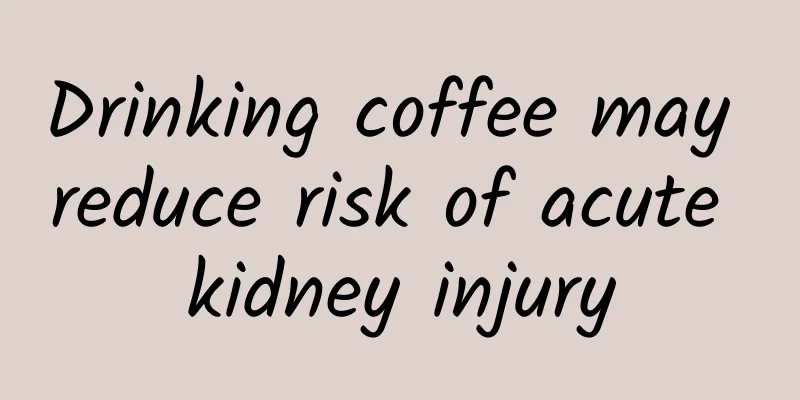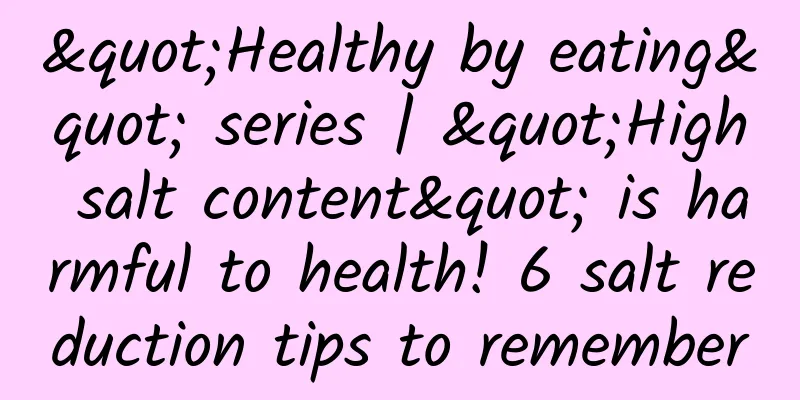Drinking coffee may reduce risk of acute kidney injury

|
American scientists recently wrote in the "International Kidney Report" that drinking coffee is associated with a reduced risk of acute kidney injury (AKI): drinking coffee every day can reduce the risk of AKI by 15%; drinking two to three cups of coffee a day can reduce the risk by 22%-23%. "We already know that regular coffee drinking can protect against chronic and degenerative diseases, including type 2 diabetes, cardiovascular disease, and liver disease, and now we have one more thing on the list -- it can reduce the risk of AKI," said Chirag Parikh, director of the Division of Nephrology at the Johns Hopkins University School of Medicine and the corresponding author of the latest study. In the latest study, Parikh's team analyzed data from the American Community Atherosclerosis Risk Study (ARIC), which included 14,207 participants aged between 45 and 64, with an average age of 54. They collected basic information about all participants, including age, gender, height, weight, diet, and history of treatment for chronic diseases such as hypertension. Over a 24-year period, participants were surveyed seven times about their daily coffee drinking: 0 cups, 1 cup, 2 to 3 cups, or more than 3 cups. During the survey, the researchers recorded a total of 1,694 cases of AKI. The results showed that after taking into account demographic characteristics, socioeconomic status, lifestyle influences and dietary factors, overall, participants who drank coffee had a 15% lower risk of developing AKI than those who did not drink coffee. Drinking two to three cups of coffee a day was associated with a more significant reduction in the risk of developing AKI - a 22% to 23% reduction. The researchers explain that the reduced risk of AKI from coffee consumption may be related to the bioactive compounds in coffee or simply due to the caffeine itself, which is thought to inhibit the production of molecules that cause chemical imbalances and excessive use of oxygen in the kidneys, thus perhaps helping the kidneys maintain homeostasis. |
<<: Scientific understanding of special medical purpose formula food
>>: Understand the "nutrition label" and play a "numbers game"!
Recommend
Can you wear a condom during sex if you have bacterial vaginitis?
Generally speaking, women are more likely to be i...
Seven months pregnant chest pain
What's going on when your chest suddenly hurt...
What to do if you have diarrhea at 33 weeks of pregnancy
The physical changes of pregnant women are very s...
What should we do if children cannot go to school due to this disease?
Parents with preschool children at home, please t...
Can I use my mobile phone immediately after myopia surgery?
Many people are very cautious about eye surgery a...
How many times a week does a 30-year-old woman
Sexual intercourse issues are a concern for many ...
How to make chestnuts and coix seeds delicious? What are the methods of cooking chestnuts in pork belly and chicken stew?
Chestnuts contain vitamin C, calcium, phosphorus,...
What causes girls to lose their hair?
Many people cannot find out what causes girls to ...
Can twins be detected early in pregnancy?
This is the 3206th article of Da Yi Xiao Hu Somet...
What should I do if a pregnant woman always vomits?
It is common for women to experience vomiting dur...
What is the best medicine for irregular menstruation?
Menstruation comes once a month, and regular mens...
Normal hcg values at 5 weeks of pregnancy
A woman's physical health during pregnancy ha...
Can I eat garlic during my period?
Female friends should eat light food during menst...
Can pregnant women drink saffron water?
Many friends are familiar with the benefits of ro...
Is high uric acid caused by diet? Many people have misunderstood! There may be problems in these areas...
Expert in this article: Li Tian, chief physicia...









